The Economics and Statistics Division maintains archives of previous publications for accountability purposes, but makes no updates to keep these documents current with the latest data revisions from Statistics Canada. As a result, information in older documents may not be accurate. Please exercise caution when referring to older documents. For the latest information and historical data, please contact the individual listed to the right.
<--- Return to Archive
For additional information relating to this article, please contact:
October 11, 2024BUILDING PERMITS, AUGUST 2024 Monthly (seasonally adjusted, August 2024 vs July 2024)
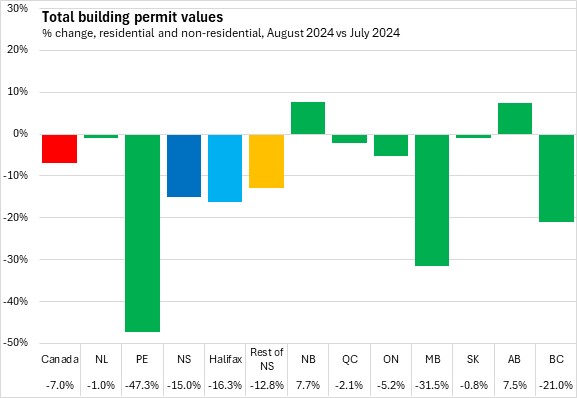
Changes in monthly building permit values are typically very volatile, with large swings from one month to the next.
Nova Scotia's total building permits (residential and non-residential) dropped by 15.0% to $225.0 million. Halifax permits fell by 16.3% to $140.0 million while permits outside the city declined 12.8% to $85.1 million. National permits fell 7.0% to $11.46 billion. Total building permit values were down in eight provinces, led by Prince Edward Island. New Brunswick and Alberta reported the only gains in building permit values.
Nova Scotia's residential building permits declined 1.2% to $175.0 million. Halifax residential permits rose 2.2% to $103.7 million. Outside the city, residential permit values fell 5.8% to $71.3 million. National residential building permit values dropped 5.2% to $7.08 billion. Residential permit values were down in 8 of 10 provinces, led by Prince Edward Island. Alberta and Quebec reported the only gains in residential permit values.
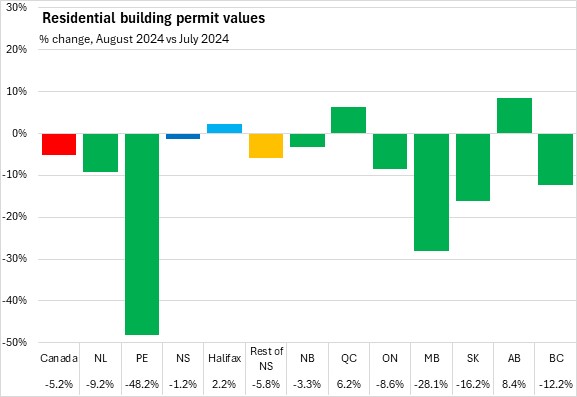
Nova Scotia's non-residential building permits fell 42.8% to $50.0 million. Halifax permits declined 44.8% to $36.3 million. Outside the city, non-residential permit values declined 36.9% to $13.8 million. National non-residential building permit values fell 9.7% to $4.38 billion. Non-residential permit values were up in four of ten provinces, with New Brunswick reporting the fastest increase. Nova Scotia and Prince Edward Island reported the steepest declines.
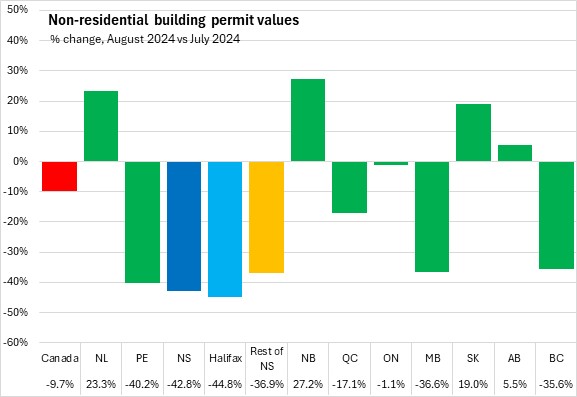
Year-to-date (January-August 2024 vs January-August 2023)
Nova Scotia's total building permits (residential and non-residential) were up 15.8% in the first eight months of the year comparing with the same period in 2023. Halifax permits increased 21.3% and outside the city permit values increased 8.0%. National permits were up 2.0%. Building permit values were up in eight out of ten provinces, led by Prince Edward Island. Quebec and British Columbia reported the only declines.
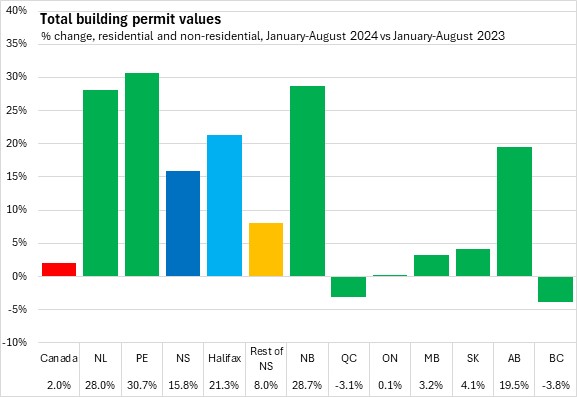
In the first eight months of 2024, Nova Scotia's residential building permits increased 24.5% compared to the same period in 2023. Halifax residential permits increased 31.7% and outside the city residential permit values increased 14.7%. National residential building permit values increased 4.9%. Residential permit values were up in seven provinces year-to-date, led by Newfoundland and Labrador. Ontario reported the largest decline.
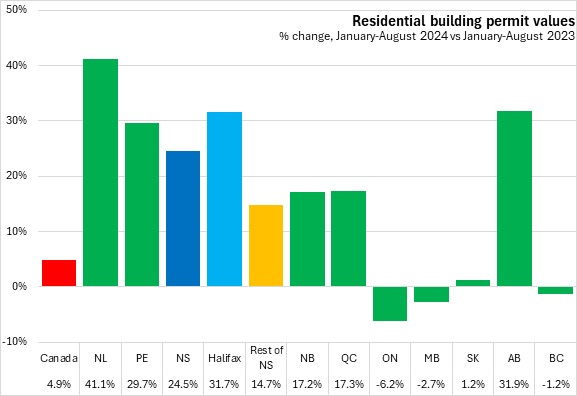
Nova Scotia's non-residential building permits fell 1.7% in the first eight months of 2024 (compared with the same period in 2023). Halifax permits increased 1.6% while non-residential permits outside the city declined 7.1%. National non-residential building permit values fell 2.5%. Non-residential permit values were up in six provinces, led by New Brunswick. Quebec reported the largest decline.
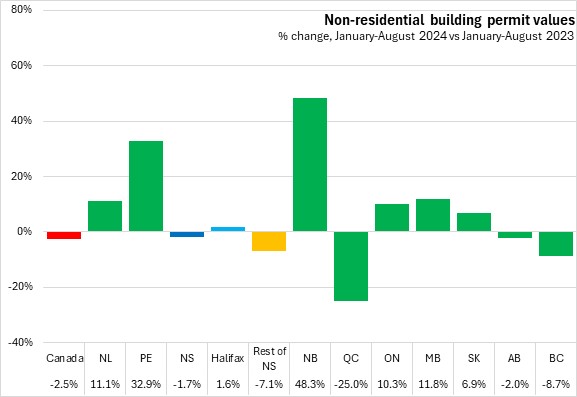
Rising residential permit values boosted overall building permit values in Nova Scotia in the first eight months of 2024 (compared with same months of 2023). Non-residential permit values rose in Halifax while they declined outside the city.
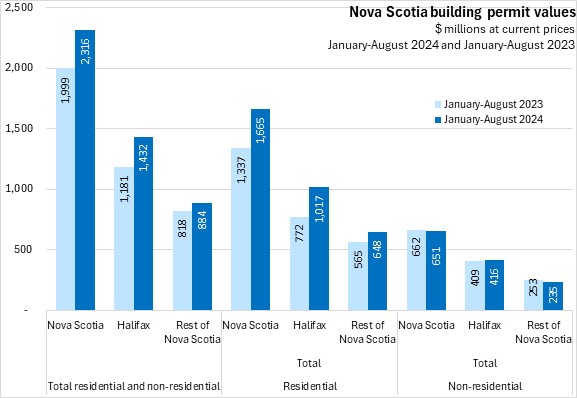
There were increases in permit values for single dwelling units in Halifax and a slight decline in the rest of the province. Multiple unit permits rose across the province.
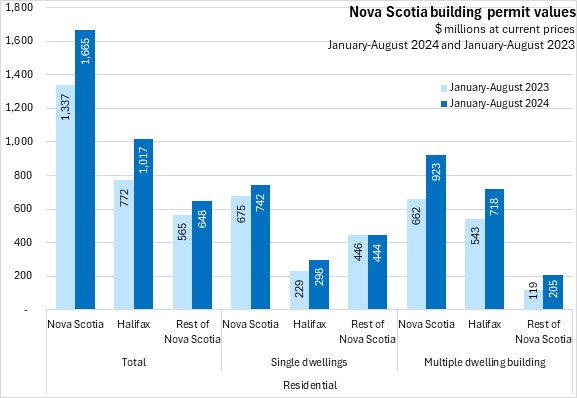
Non-residential permit values were down in commercial projects across the province. Institutional and government building permits were up across the province. Industrial permits fell in Halifax and rose in the rest of the province.
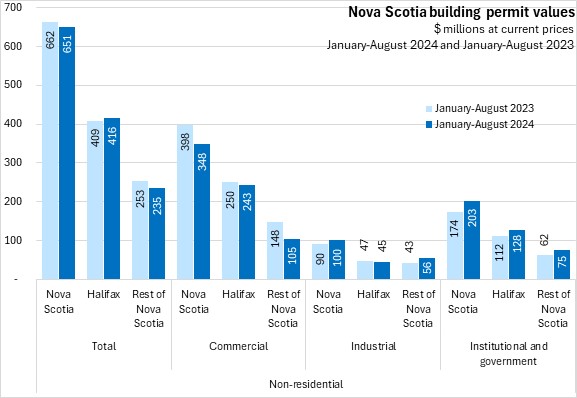
Trends
Overall building permit values have generally been on a rising trend for several years, though there have been periods of declining values over this period. Rising permit values are mostly driven by higher residential permits within Halifax as well as outside the city.
After trending down in late 2022 and early 2023, residential permit values started to rise again in Halifax in the middle of 2023. Halifax residential permit values are trending down in recent months.
Nova Scotia's non-residential building permit values started to rise in early 2023 before reaching a plateau through the end of the year. Non-residential permit values continue to increase in Halifax while declining in the rest of Nova Scotia, resulting in a continuation of the current plateau.
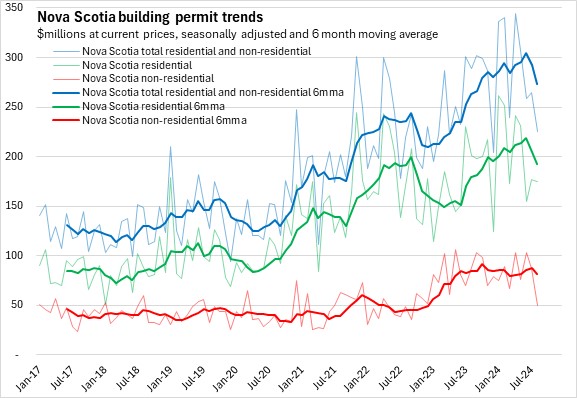
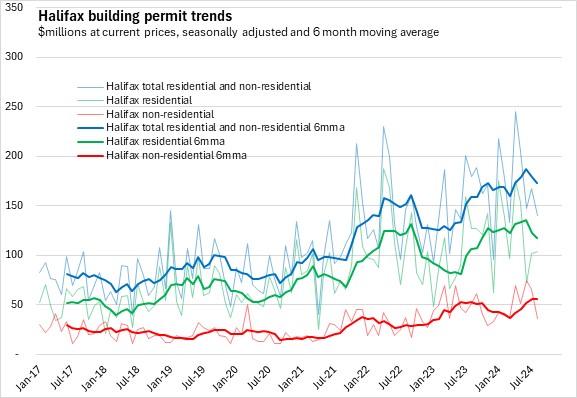
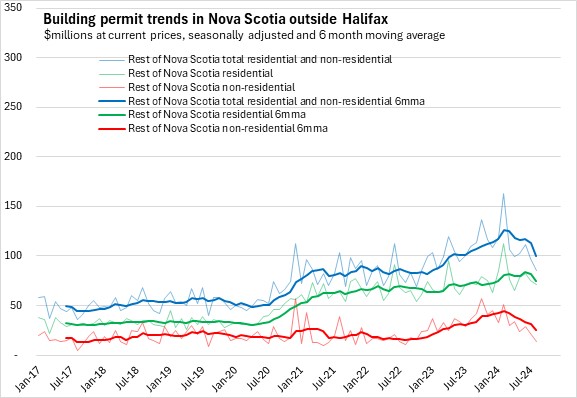
Trends in residential permit values reflect the differences in housing markets for Halifax and the rest of the province. In Halifax, growth in permit values for multi-unit dwellings has outpaced growth in single-dwelling unit permits. Outside the city the situation is reversed, where single dwelling unit permits are more common than permits for multi-unit structures.
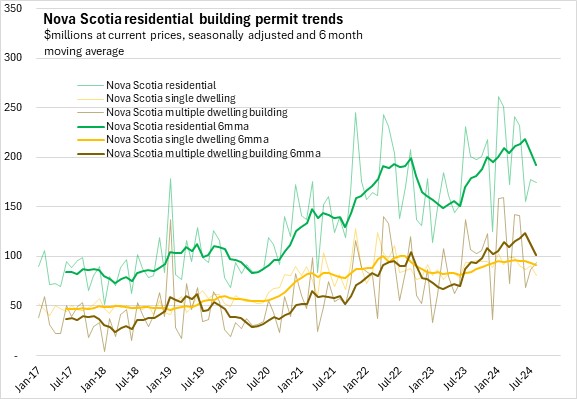
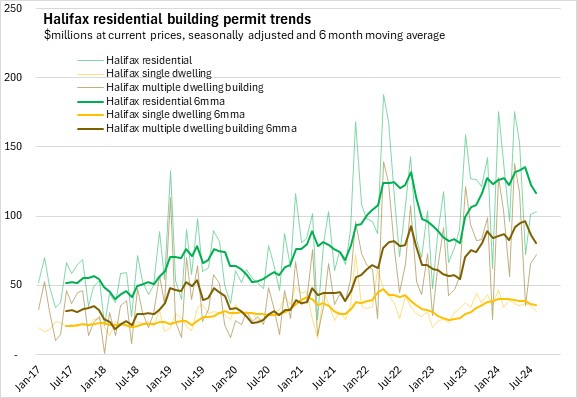
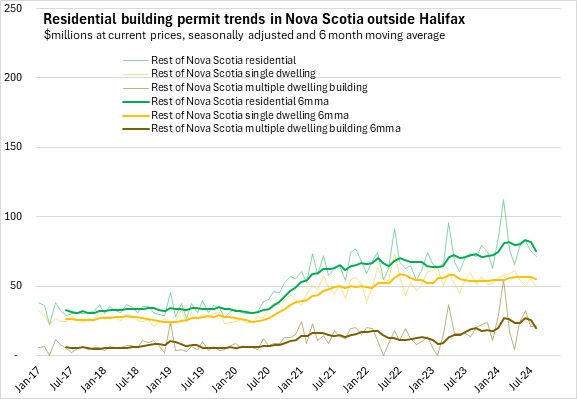
Non-residential building permits have lower values than residential permits. In Halifax, non-residential permits have been trending upward in recent months due to rising commercial and institutional/governmental projects. After rising in early 2023, Halifax values for industrial building permits subsequently declined and have a slightly rising trend in recent months. Outside the city, permits have reached the peak and there is a decline in commercial and institutional/government permits.
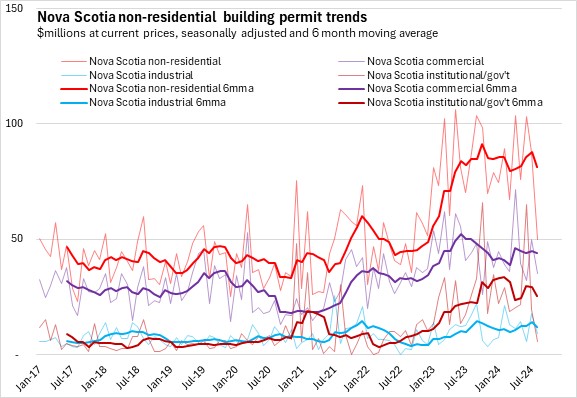
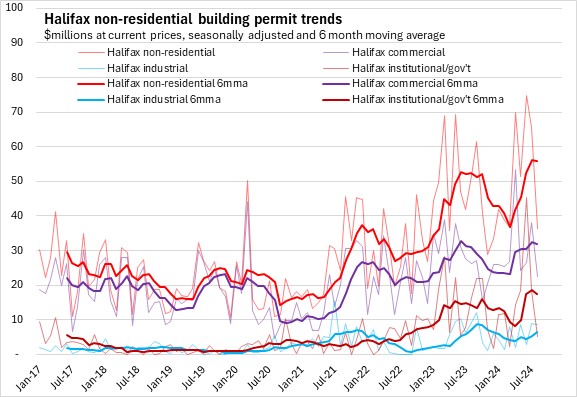
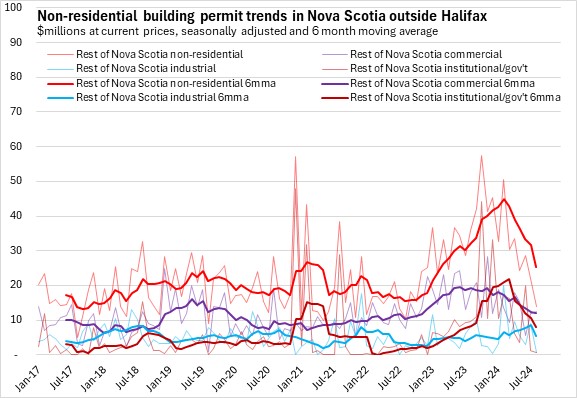
Source: Statistics Canada. Table 34-10-0285-01 Building permits, by type of structure and type of work (x 1,000)
<--- Return to Archive